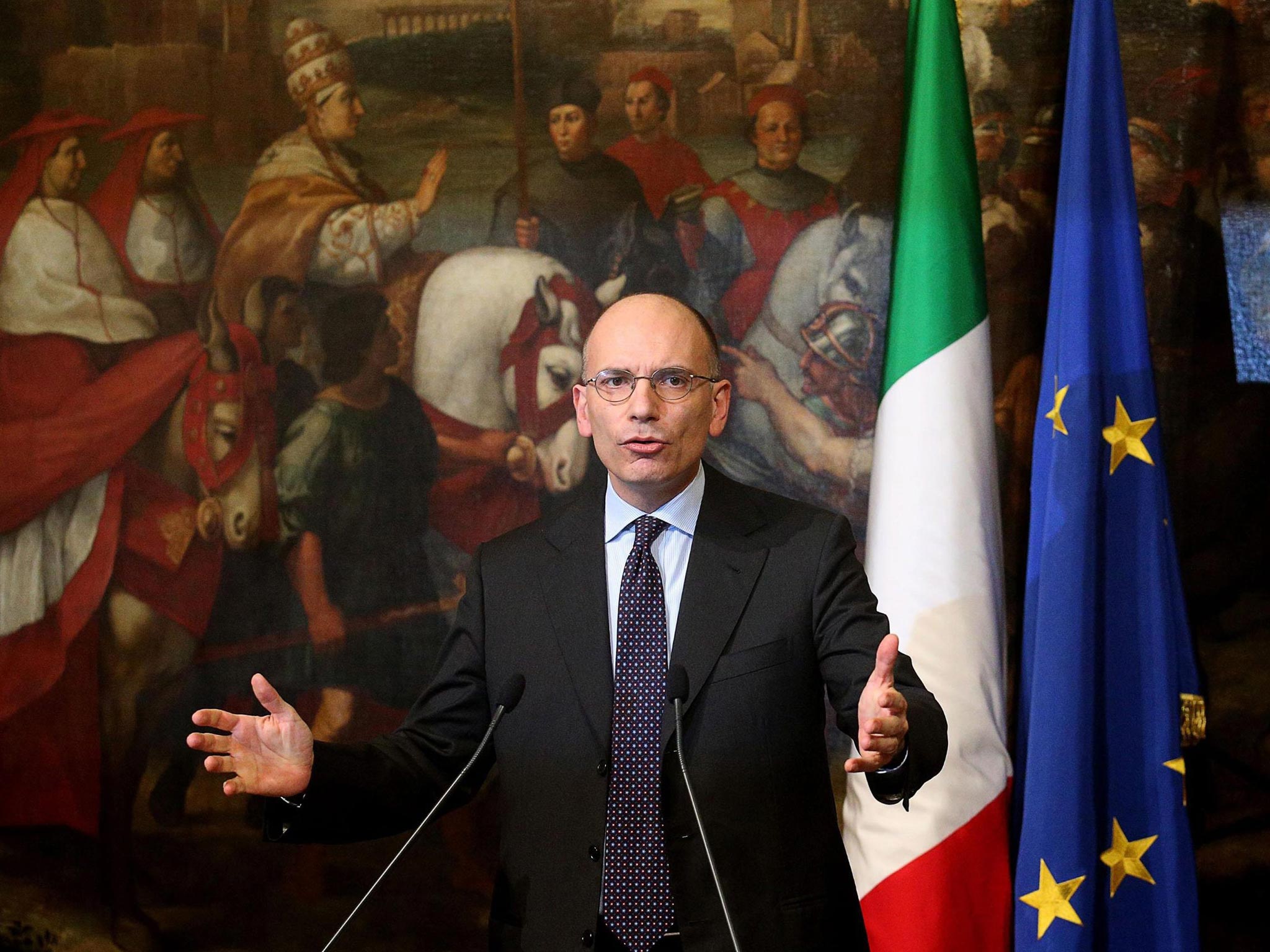PM Enrico Letta steps down: Plagued by uncertainty, Italy set for its third government in a year
President Giorgio Napolitano is expected to call on centre-left leader Matteo Renzi to form a new administration after PM Enrico Letta said he will resign

Your support helps us to tell the story
From reproductive rights to climate change to Big Tech, The Independent is on the ground when the story is developing. Whether it's investigating the financials of Elon Musk's pro-Trump PAC or producing our latest documentary, 'The A Word', which shines a light on the American women fighting for reproductive rights, we know how important it is to parse out the facts from the messaging.
At such a critical moment in US history, we need reporters on the ground. Your donation allows us to keep sending journalists to speak to both sides of the story.
The Independent is trusted by Americans across the entire political spectrum. And unlike many other quality news outlets, we choose not to lock Americans out of our reporting and analysis with paywalls. We believe quality journalism should be available to everyone, paid for by those who can afford it.
Your support makes all the difference.The Italian Prime Minister, Enrico Letta, has said he will tender his resignation, opening the way for centre-left leader Matteo Renzi to take the helm of Italy’s third government in less than a year.
His decision to resign, which will be formally announced on Friday, came after the Democratic Party (PD), the largest party in the ruling coalition, supported a call by Mr Renzi, its 39-year-old leader, for a more ambitious government to pull Italy out of its economic slump.
“Italy cannot live in a situation of uncertainty and instability. We are at a crossroads,” Mr Renzi told the 140-strong leadership committee.
Mr Letta did not attend the meeting, saying he wanted his party to decide freely whether to continue supporting him or not. In a statement after the meeting, he said he would tender his resignation to President Giorgio Napolitano. Mr Napolitano is then expected to call on Mr Renzi to form a new administration.
Growing criticism over the slow pace of economic reform has left Mr Letta, a low-key moderate appointed to lead the cross-party coalition patched together after last year’s deadlocked elections, increasingly isolated.
Mr Renzi said in his speech to the PD’s leadership committee: “People have accused me and the PD of having an outsize ambition. I don’t deny this. We all need to have this, from me to the last party member. I am asking you to help us get Italy out of the mire.”
The latest bout of political turmoil in Italy, the eurozone’s third-largest economy, has so far had little impact on financial markets, in contrast with previous crises such as the extended stalemate after last year’s election.
However, the continual uncertainty has held back any concerted effort to revive an economy struggling to emerge from its worst slump since the Second World War or overhaul a political system blamed for hampering efforts at any deep reform programme.
In his speech, Mr Renzi acknowledged that forcing Mr Letta out and trying to form a new government with the existing centrist and centre-right coalition partners carried risks for both the government and himself personally. But there was no alternative.
“Putting oneself on the line right now carries an element of risk, but a politician has the duty to take risks at certain moments,” he said. He added that he saw the new government lasting until 2018.
If Mr Renzi is named prime minister, he will be Italy’s third unelected leader in succession after the technocrat Mario Monti and Mr Letta, who was appointed as premier last April after weeks of fruitless wrangling.
A sharp-talking politician whose main experience of government has been as the mayor of Florence, Mr Renzi is not a member of parliament and has never stood in a national election. He has always said he would only want to become prime minister if he had a clear mandate from voters.
However, he said that until the voting law blamed for the last stalemate had been changed, a new ballot was not possible.
“The idea of elections has a certain attraction but it wouldn’t guarantee a certain victory for anyone,” he said during the speech.
Having burst on to the political scene promising renewal and a break with the Byzantine traditions of Italian politics, Mr Renzi may now gain power with the same type of backroom manoeuvring that characterised revolving-door Christian Democrat governments of the past.
Giovanni Toti, a political adviser to the former centre-right Prime Minister Silvio Berlusconi, told RAI state television: “This is a very dangerous operation by Renzi both for the country and for himself. He was supposed to be the outsider who was going to renew the PD. Now, as soon as he gets close to power, he’s behaving exactly like all the others.”
Angelino Alfano, the head of the New Centre Right party that supports the ruling coalition, offered his backing, saying Mr Letta could count on a “loyal, correct and fruitful alliance” as long as he retained the backing of the PD.
Reuters
Join our commenting forum
Join thought-provoking conversations, follow other Independent readers and see their replies
Comments